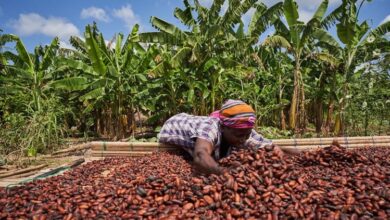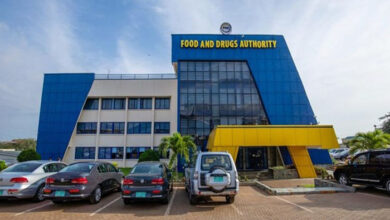
Ghana is losing an estimated GH¢22.5 million each year due to the unregulated export of raw rubber, according to the Tree Crops Development Authority (TCDA).
To stem the losses and strengthen local processing industries, the TCDA has introduced new regulations requiring exporters of rubber, cashew, and shea to obtain written approval before shipping these commodities abroad. The directive, which took effect on May 2, aims to prioritize domestic value addition.
“We’re not banning exports,” said Andrew Osei Okrah, Acting CEO of the TCDA. “We’re ensuring local factories get the raw materials they need before anything is sent out. That’s what the law requires.”
Ghana exports around 3,000 metric tonnes of unprocessed rubber annually at an estimated value of GH¢450 per tonne, resulting in the annual GH¢22.5 million loss. Okrah warned that continued unregulated exports could lead to job losses in the rubber processing industry, which currently employs over 1,400 people and could support up to 6,000 under a full-capacity model.
Industry stakeholders have long expressed concern over lax enforcement, which has weakened the rubber value chain. Emmanuel Akwesi Owusu, President of the Association of Natural Rubber Actors of Ghana (ANRAC), said side-selling and unchecked exports have hurt farmers and processors alike.
“Some farmers can’t repay their loans because their produce is being undercut or stolen. At least one factory has shut down, and others are running at just 60% capacity,” Owusu noted.
Ghana produces about 100,000 metric tonnes of rubber annually, but roughly 40%—or 40,000 tonnes—is exported unprocessed. With international prices averaging US$700 per tonne, this represents a significant loss of value and foreign exchange potential.
Established under Act 1010 in 2020, the TCDA has only recently begun enforcing its regulatory authority. Regulation LI 2471 now mandates prior notification and approval for the export of rubber, cashew, and shea. Key stakeholders, including the Ghana Revenue Authority, Customs Division, Port Authority, and Ghana Shippers’ Authority, have committed to enforcing the new rules at ports nationwide.
Owusu welcomed the enforcement, saying it offers a much-needed boost to the sector. “With proper regulation, we can stabilise the industry, improve farmer incomes, and create more jobs—from processing to logistics,” he said.
He added that investor confidence has dwindled due to the lack of regulation. Between 1995 and 2018, over 35,000 hectares of rubber were cultivated through government-supported initiatives, but momentum has slowed as financial institutions pull back from the sector.


